We've all been thereâpromising to do something and then not following through. It can feel incredibly frustrating, both for the person who was let down and for us when we realize we've fallen short. A heartfelt apology can go a long way in mending those feelings and rebuilding trust. If you're looking for a thoughtful way to express your remorse for a broken promise, keep reading to discover the perfect letter template!
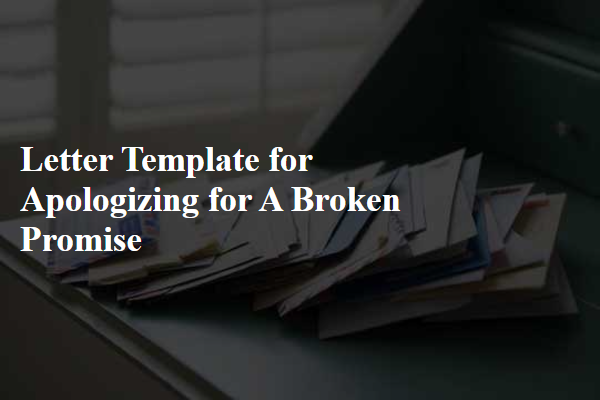
Sincere Apology
A sincere apology can help mend relationships after breaking a promise. Acknowledging responsibility shows integrity. Expressing regret demonstrates empathy. Offering a solution highlights commitment to improvement. For example, if promising to arrive at an event, falling short can lead to disappointment for those involved, such as family members or colleagues. Distancing oneself from the commitment affects trust. Emphasizing the importance of the relationship adds weight to the apology. Follow-up actions, such as rescheduling or making amends, can reinforce dedication to change.
Acknowledgment of the Broken Promise
Acknowledgment of a broken promise holds significant emotional weight in interpersonal relationships. Recognizing the impact of failing to meet expectations can strengthen connections. A broken promise may occur due to unforeseen circumstances, such as personal emergencies or external pressures. This acknowledgment involves taking full responsibility for the unmet commitment and understanding how it has affected the other person's feelings, such as disappointment or mistrust. Open communication about the reasons behind the broken promise fosters transparency and may help rebuild trust over time. Expressing genuine remorse can pave the way for reconciliation and future discussions on how to avoid similar situations, reinforcing the importance of accountability in relationships.
Explanation or Context
Apologies often arise from broken promises, particularly when personal commitments are involved. A significant promise, such as attending a cherished family gathering, can lead to disappointment when unexpected events occur, like a sudden work obligation or a medical emergency. The emotional weight of such situations can be profound, as trust and relationships may be impacted. A sincere apology conveys understanding of the disappointment caused, acknowledges the importance of the promise, and emphasizes a commitment to make amends in the future. Additionally, referencing the specific event and its significance helps contextualize the situation, reinforcing the remorse felt.
Offering a Solution or Reparation
A broken promise can lead to disappointment and frustration, impacting relationships and trust. Acknowledging the mistake with sincerity is crucial. Addressing the recipient directly, express regret for the unmet commitment. Offer a tangible solution or reparation, such as rescheduling a missed meeting or providing a small gift as an apology, demonstrating a commitment to making amends. Clearly outline a plan to prevent future occurrences, emphasizing personal responsibility. Reinforce the value of the relationship and express a desire to rebuild trust moving forward.
Commitment to Future Reliability
Apologizing for a broken promise can be an important step in maintaining trust and reliability in any relationship, personal or professional. A commitment to future reliability can be emphasized through sincere acknowledgment of the mistake, along with a clear outline of how one intends to ensure that similar issues do not arise in the future. Addressing specific actions that will be taken to improve reliability may help rebuild trust. For instance, implementing a transparent communication strategy can enhance accountability. Offering a timeline for when commitments will be met demonstrates accountability to the other party, fostering a sense of reassurance and dedication to maintaining the relationship.

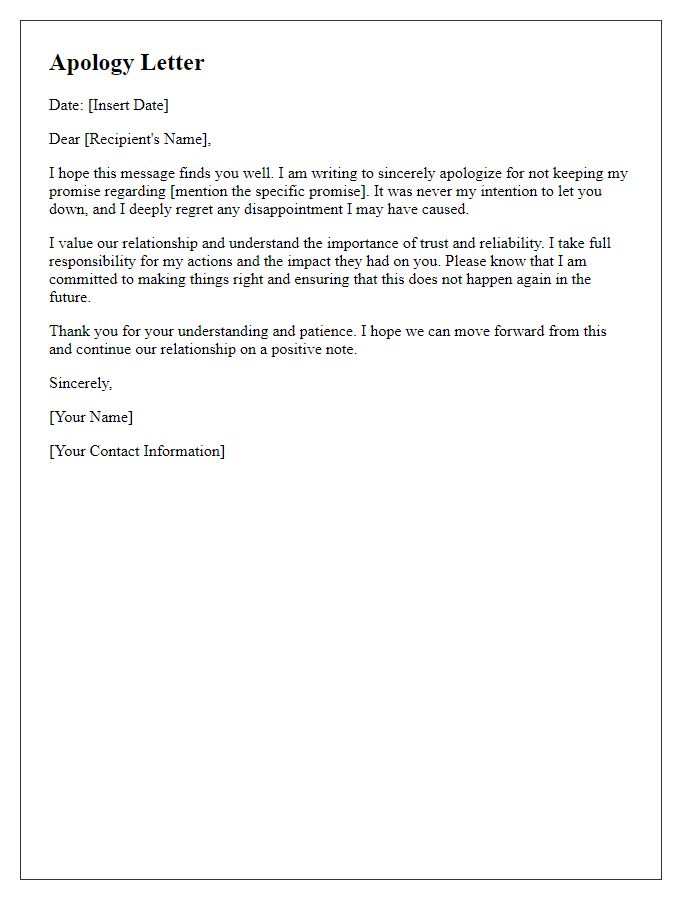
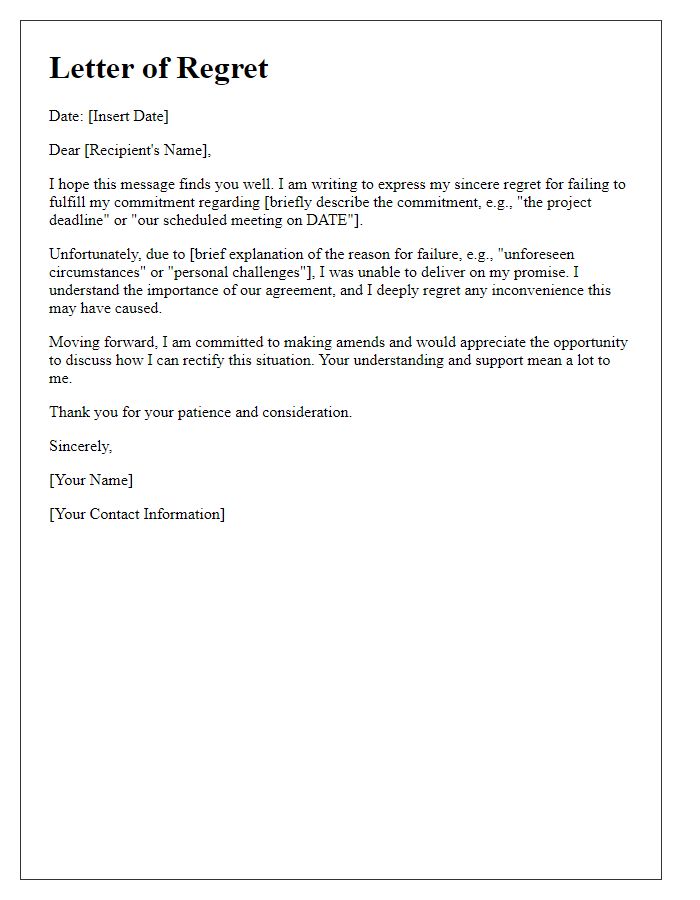
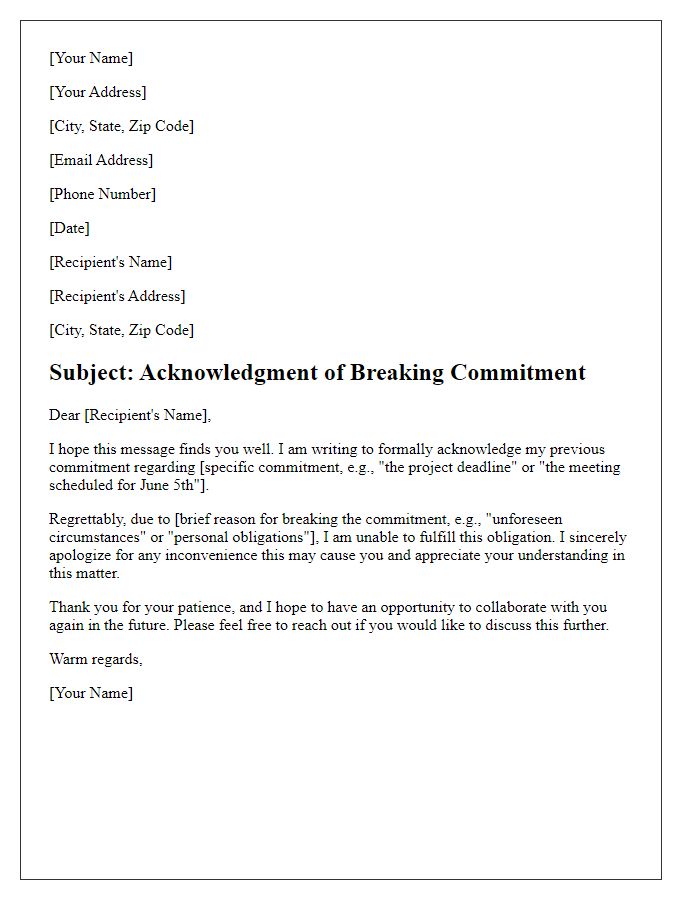
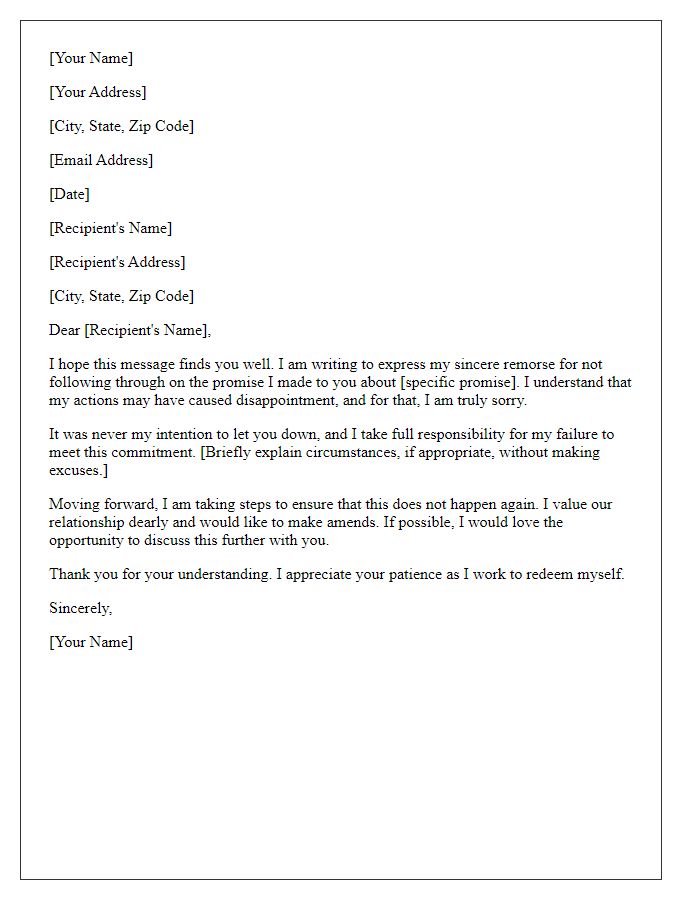
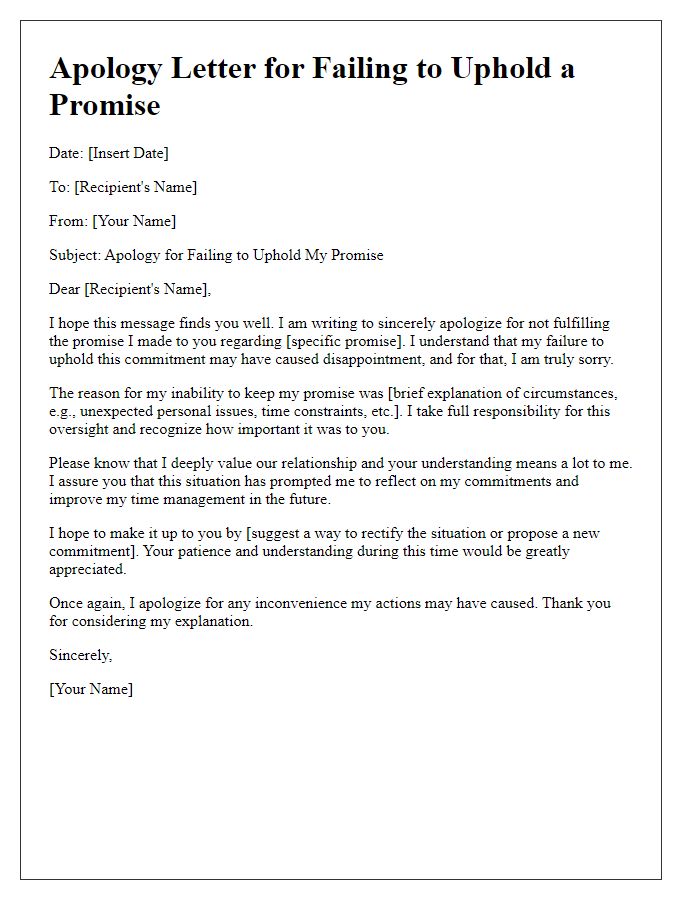
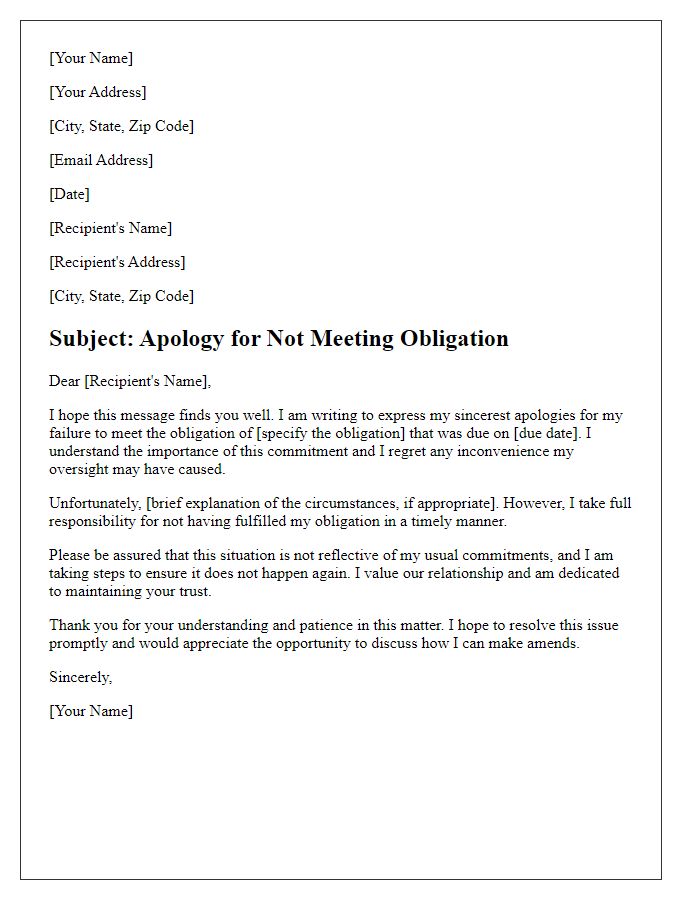
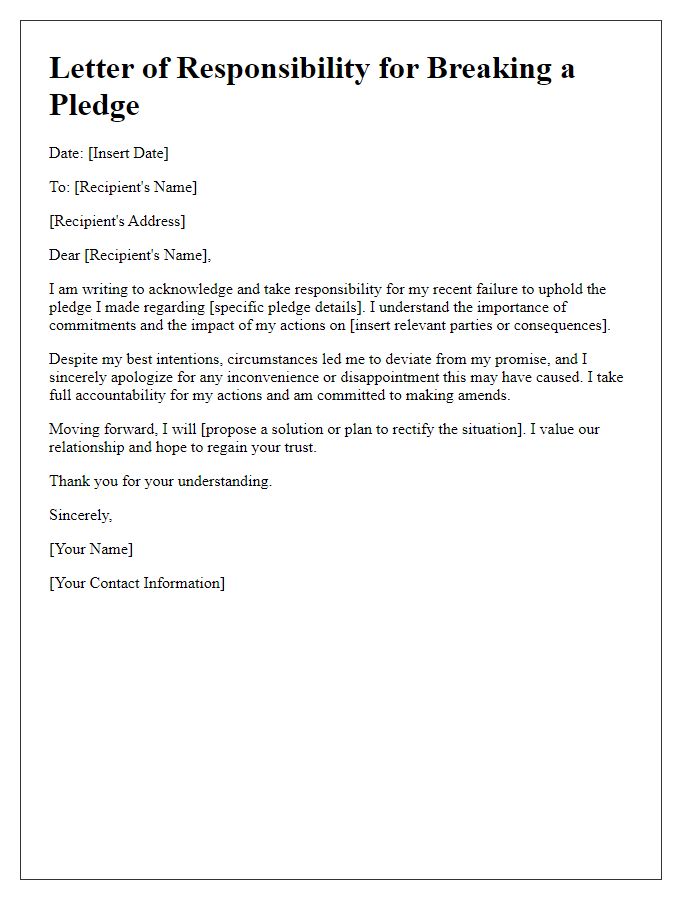
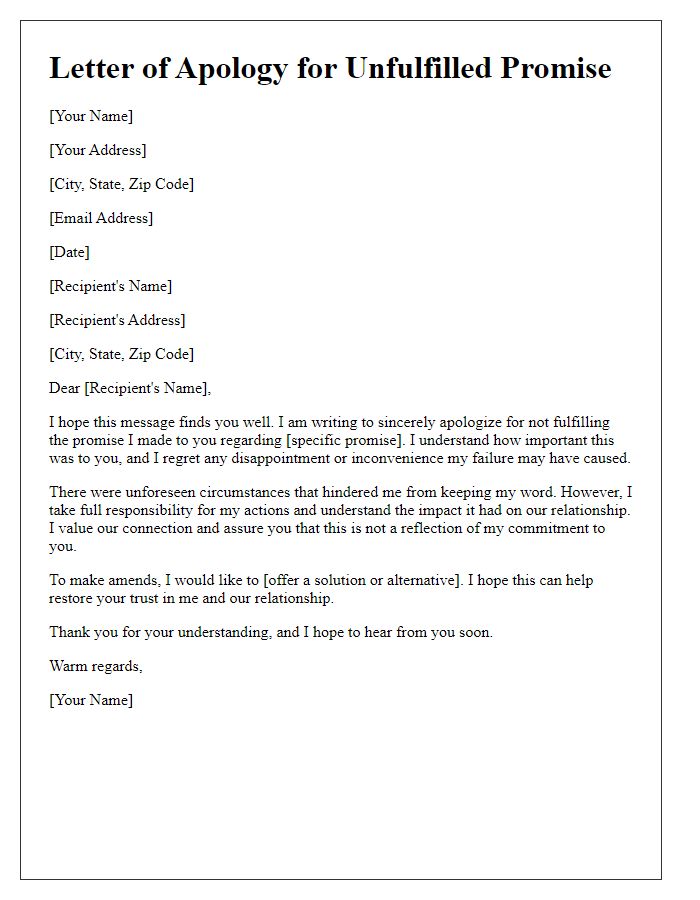
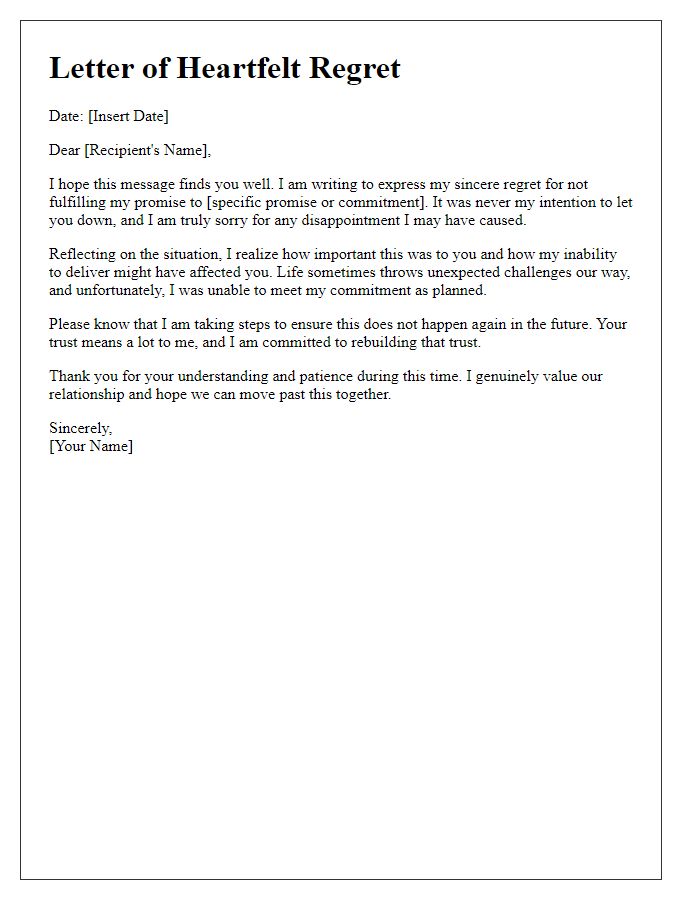
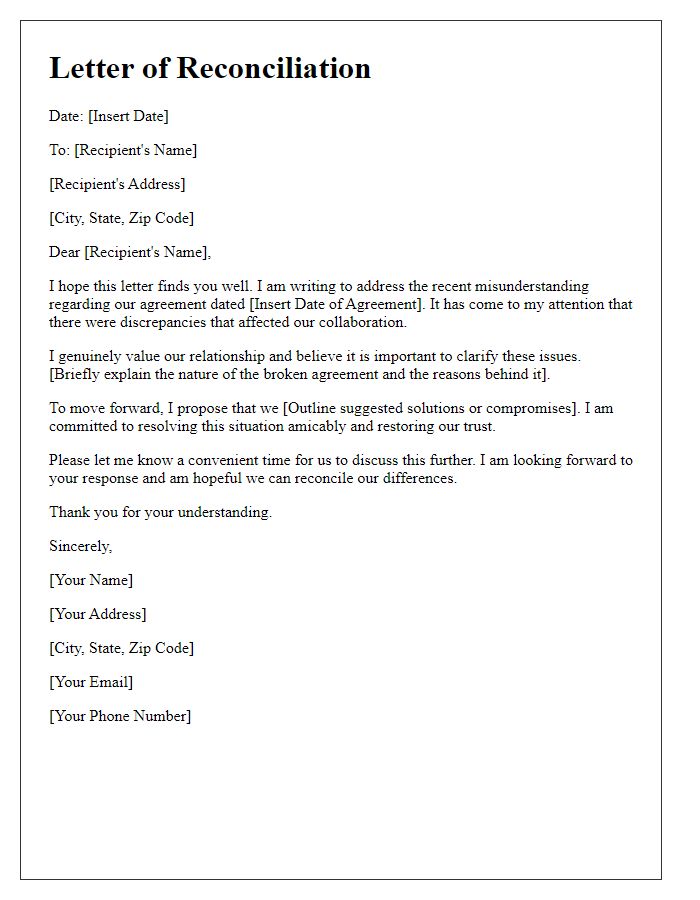

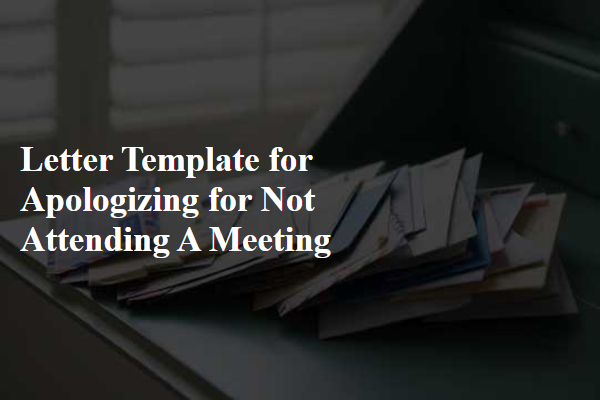
Comments